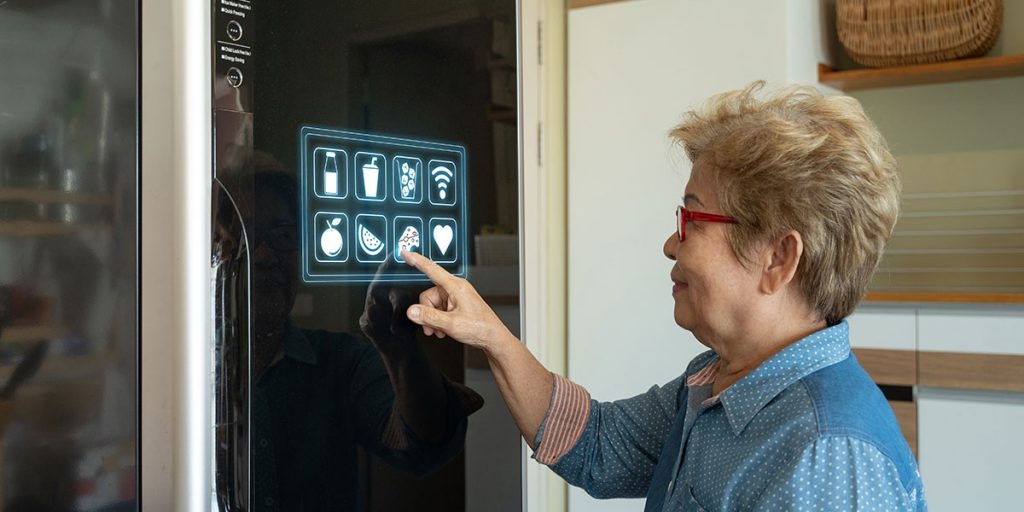
Artificial Intelligence: Helping to Revolutionize Healthcare
Artificial intelligence (AI) is the theory and development of computer systems capable of performing tasks that historically required human intelligence, such as making decisions, solving problems, and identifying patterns. AI encompasses a wide variety of technologies that control many of the services and goods we use in everyday life, including machine learning, deep learning, and natural language processing (NLP). AI has shaped opportunities to advance on real-world problems concerning health, education, and the environment. In some cases, artificial intelligence can do things more efficiently or precisely than human intelligence.1 In healthcare, AI is used to mimic human analysis, the understanding of healthcare data, expedite clinical workflow, and identify health problems efficiently.2 AI algorithms are helping healthcare providers and public health officials to detect and diagnose chronic diseases earlier, personalize treatment plans, monitor patients remotely, and predict the spread of these diseases in the population.3
AI in elderly care
Caring for our seniors is essential to our sense of community. It is essential to civil society. Not to mention that we all want to be cared for as we ourselves age. In a time when chronic diseases are on the rise, people are living longer, and where the healthcare provider shortage continues to strain our care resources, it is comforting to know that artificial intelligence (AI) powered software and technologies are providing necessary solutions. These solutions extend care and help to support the elderly in a variety of ways including providing a better quality of life, promoting independence, monitoring health, and enhancing social interaction.4
- Promoting independence
AI-powered applications and tools can help the elderly perform daily tasks, such as medication management, fall detection, and navigation, allowing them to live independently for longer. Smart home systems integrated with AI can adapt to seniors’ daily routines and preferences. Voice-activated technologies like Amazon’s Alexa or Google Assistant can assist with various household tasks such as turning on lights, adjusting room temperature, or ordering groceries.5 AI-powered home monitoring systems can ensure safety by detecting falls or accidents and notifying emergency services if needed. These systems can send real-time alerts to the family, care facility, or medical agent that something abnormal has been detected. AI-driven wearable devices can monitor vital signs and activity levels, promoting a lifestyle that is healthier and more independent. These advancements empower seniors to comfortably live independently while providing an added layer of security.
- Monitoring chronic diseases
Chronic diseases such as diabetes, heart disease, and cancer are some of the leading causes of death and disability around the world. By analyzing vast amounts of data quickly and accurately from sources such as wearable devices, genetic testing, and electronic medical records, AI algorithms can identify patterns and risk factors for chronic diseases, allowing for early detection and diagnosis. For example, AI-enabled diagnostic tools can analyze medical images such as X-rays, MRIs, and CT scans, detecting abnormalities that could be missed by human radiologists. AI also has the capability to personalize treatment plans using one’s individualized characteristics and medical history including factors such as age, sex, genetics, lifestyle, and environmental exposures. Using this data, AI algorithms can determine the most effective and targeted treatment plans for an individual, reduce the risk of complications, and improve outcomes. Another AI component in the role of chronic disease prevention and management is the use of AI-powered remote patient monitoring devices. These devices use sensors and wearables to collect data on one’s vital signs, activity levels, and other health indicators, transferring the information to healthcare providers in real-time. AI is also being used in public health surveillance to analyze and predict the spread of chronic diseases. With data collected from electronic health records, social media, and other sources, AI algorithms can recognize patterns and risk factors for these diseases, allowing for targeted public health prevention strategies. For example, AI-powered predictive models can pinpoint communities at high risk for diabetes, enabling targeted public health campaigns to promote healthy lifestyle behaviors and reduce the risk of developing the disease.3
- Assistive robots and physical support
AI empowered robotic systems equipped with sensors and actuators can offer physical assistance with mobility support, household chores, and personal hygiene. These robots can be programmed to adapt to individual needs, granting personalized and responsive treatment. Robots with a mind are being developed to assist elderly patients in hospitals with their therapy. With physical touch, these robots can affect the patient’s emotional, physical, and social well-being in a positive way.
- Social robots and social interaction
Social interaction is a key factor in promoting mental well-being and combating social isolation in the elderly. With their companionship and engagement, social robots provide emotional support and cognitive stimulation. These AI enhanced robots can engage in conversations, play games, and even assist in reminiscence therapy, improving overall quality of life.
AI’s power to impact and improve human health is why Johnson & Johnson, and many other leading healthcare companies are actively using the technology in different ways, from speeding up the process of discovering new medicines to helping surgeons analyze the results of procedures. “There’s a deep demand for solutions in the healthcare space,” says Shan Jegatheeswaran, Global Head of MedTech Digital, Johnson & Johnson. “But it’s important to remember that the most sophisticated thing in the clinical workflow is still the human brain. The role of AI is to augment a human decision or action in a way that improves speed, quality, or both.”6
References:
1 Coursera https://www.coursera.org/articles/what-is-artificial-intelligence
2 MindSea https://mindsea.com/ai-senior-care/
3 iMeetify https://imeetify.com/blog/how-ai-is-helping-to-predict-and-prevent-chronic-diseases/
4 National Institutes of Health https://www.ncbi.nlm.nih.gov/pmc/articles/PMC10474924/#REF1
5 Senior Helpers https://www.seniorhelpers.ca/blog/how-ai-technology-can-improve-the-lives-of-the-elderly
6 Johnson & Johnson https://www.jnj.com/innovation/artificial-intelligence-in-healthcare?utm_source=bing&utm_medium=cpc&utm_campaign=BI-USA-ENG-PS-Corporate+Equity-GP-PH-RN-NB_STORIES_ARTIFICIAL+INTELLIGENCE&utm_content=AI+-+Healthcare&utm_term=ai+in+healthcare&gclid=dee70dd8770f14e16fe268ab2a583e70&gclsrc=3p.ds&msclkid=dee70dd8770f14e16fe268ab2a583e70